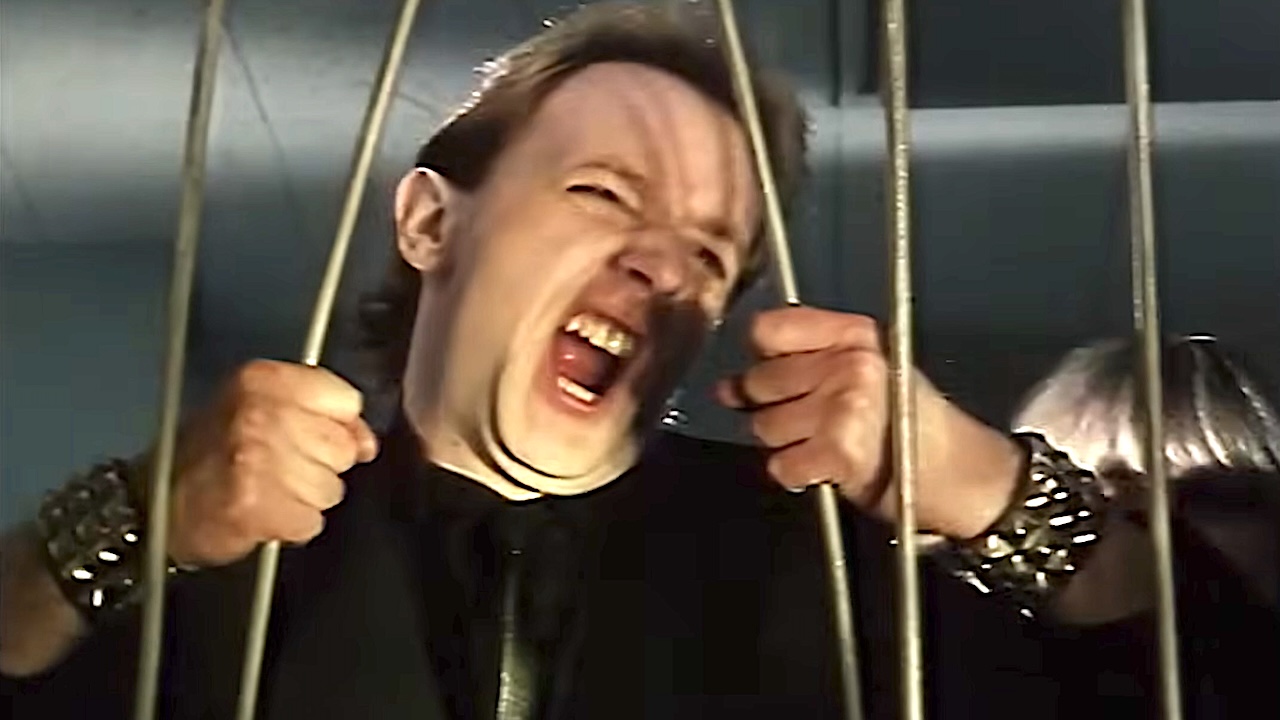"He was a guy who would chop the bedroom door down with an axe, like Jack Nicholson": A decade on from the disease that nearly killed him, Walter Trout is on a roll, looking at a world gone wrong
Walter Trout on growing up, deep fakes, John Lee Hooker and John Mayall, defeating addiction and new album Sign Of The Times
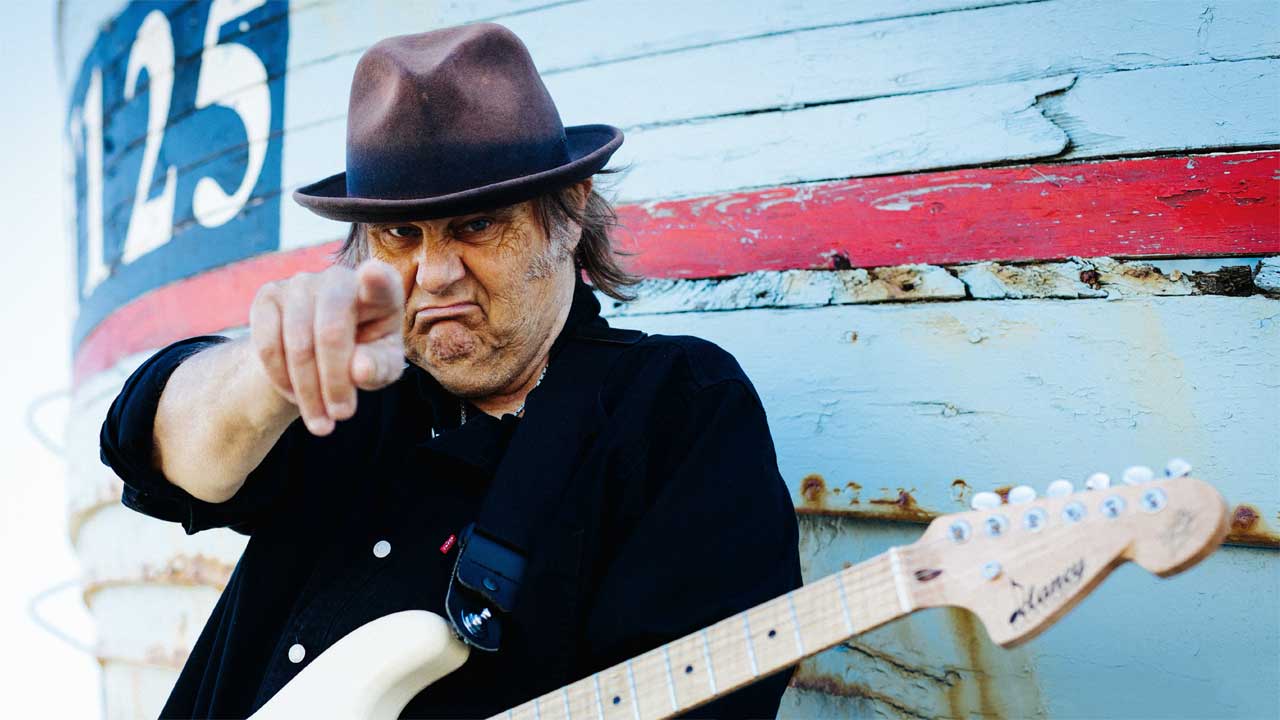
Select the newsletters you’d like to receive. Then, add your email to sign up.
You are now subscribed
Your newsletter sign-up was successful
Want to add more newsletters?

Every Friday
Louder
Louder’s weekly newsletter is jam-packed with the team’s personal highlights from the last seven days, including features, breaking news, reviews and tons of juicy exclusives from the world of alternative music.

Every Friday
Classic Rock
The Classic Rock newsletter is an essential read for the discerning rock fan. Every week we bring you the news, reviews and the very best features and interviews from our extensive archive. Written by rock fans for rock fans.

Every Friday
Metal Hammer
For the last four decades Metal Hammer has been the world’s greatest metal magazine. Created by metalheads for metalheads, ‘Hammer takes you behind the scenes, closer to the action, and nearer to the bands that you love the most.

Every Friday
Prog
The Prog newsletter brings you the very best of Prog Magazine and our website, every Friday. We'll deliver you the very latest news from the Prog universe, informative features and archive material from Prog’s impressive vault.
Walter Trout is killing time in a modest hotel room in Solihull, ahead of tomorrow’s show in Warwick. He’s itching to play and ready to talk. He jokes about Zoom’s failings - “I feel like I’m in a bad acid trip” - cursing the technology, while offering up stories with the human warmth and passion of a man who has survived more than most, and come out fighting.
Now 74, he is certainly not coasting on past glories. If anything, he’s more driven than ever – fuelled by a sense that time is both precious and urgent. “I never expected to make it this far,” he says, recalling the addictions that nearly killed him in his twenties, and the liver failure that nearly took him a decade ago. “I’m like a cat. I’m on my third or fourth or fifth chance here. And with each one I get more involved in wanting to be an artist, wanting to say something that means something to somebody.”
Trout is staring down the future with a more focused version of the hunger that propelled him from the clubs of New Jersey to a globe-trotting career with Canned Heat, John Mayall’s Bluesbreakers and his solo career beyond. His new album, Sign Of The Times, is testament to a spirit that only seems to get more determined: a searing blues-rock survey of a world gone strange, threaded with a fierce apolitical edge and the kind of raw, personal candour that’s made Trout a survivor, an outlier, and perhaps one of the most underrated songwriters of his generation.
Far from settling into nostalgia, he is eager to push into new territory. “Great guitar players now, they’re a dime a dozen,” he says. “I want to play less but have it mean more. Melody, feeling, expression – that’s what I’m going for.”
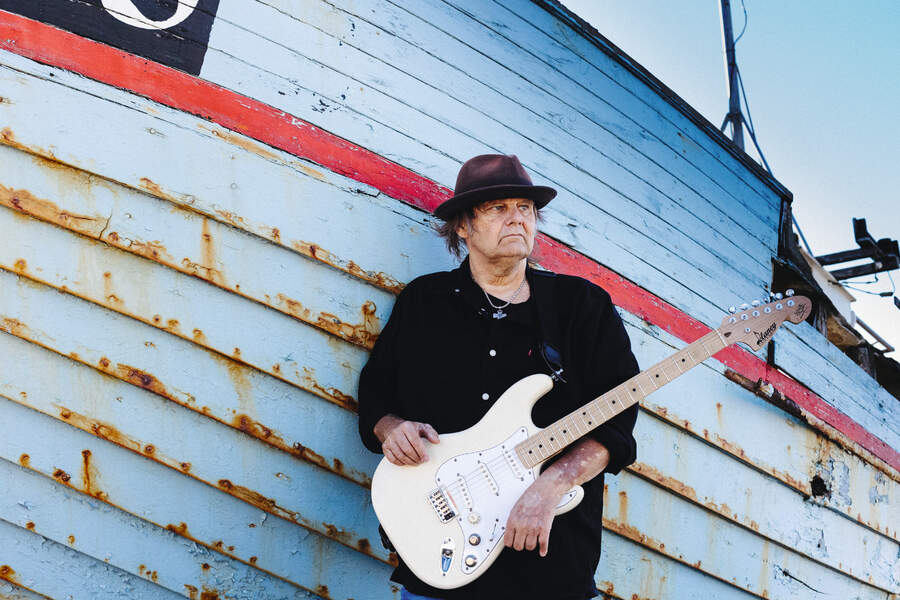
And that’s what he gets. Sign Of The Times shimmers and shudders with a restless, heatseeking urgency. The album is not just a lament for a fractured, doom-scrolling world, it’s also a fierce refusal to surrender to cynicism. Tracks such as Artificial, with its snarling indictment of digital fakery, find him in no mood to let the chaos pass unchallenged. Built around a monster riff and underscored by a wild harmonica line played by Trout himself, the track channels the freewheeling energy of classic heavy rock bands such as Mountain in their heyday.
“It used to be if they had a video of somebody murdering somebody, they showed that in the courtroom and the guy was obviously guilty as hell. None of that works [any more] because of these deep fakes,” Trout says. “I’m not gonna ask a computer to help me do what I do. If it’s not coming from me, I’m not putting it out there.”
No Strings Attached simmers rather than bludgeons, built around moody flourishes that evoke the stuttering, gunshot paranoia of Jimi Hendrix’s Machine Gun. Struggle To Believe unspools like a live jam – raw and ragged, with a free-form middle section that brings to mind the improvisational energy of a Gov’t Mule workout. Trout sings of humanity and dignity slipping away (‘I struggle to hold on…’) while his band, featuring Teddy ‘Zig Zag’ Andreadis (keyboards), John Avila (bass) and Michael Leasure (drums), bumps and jumps around him, generating an incredible, one-take, live-in-the-studio chemistry.
Sign up below to get the latest from Classic Rock, plus exclusive special offers, direct to your inbox!
But while Trout rages against the state of the world, he does so with a wink as well as a snarl. ‘Sometimes a sinner and sometimes a saint, I am what I am, I ain’t what I ain’t,’ he sings on Hightech Woman, a wry reminder that beneath the heavy riffs and social commentary lies a self-aware, sardonic wit that’s carried him through six decades on the road. It’s a line that would have scandalised his mother.
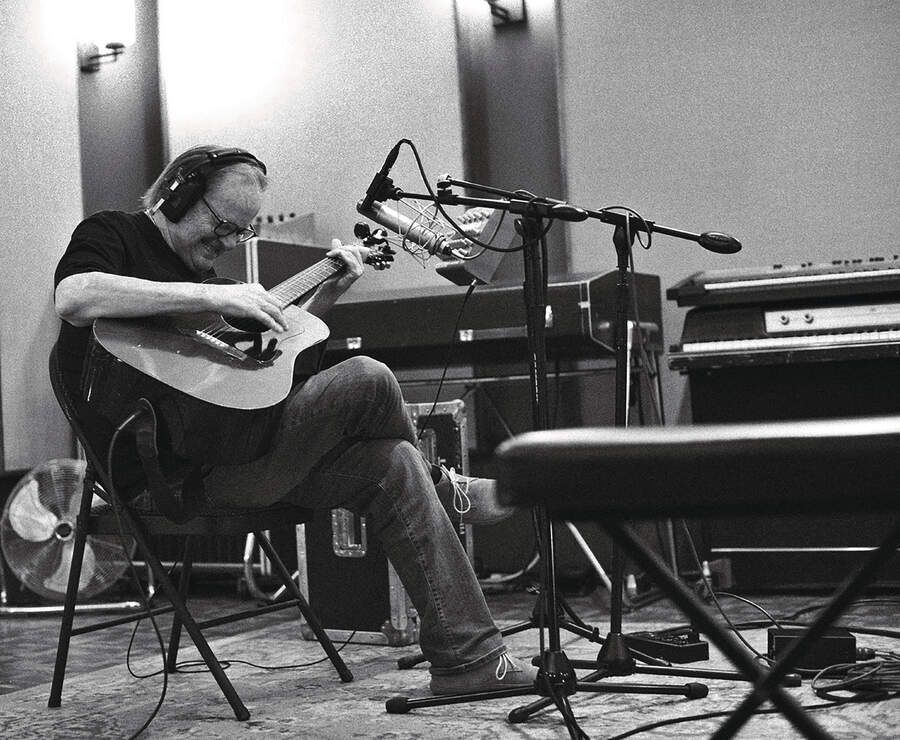
“My mother was an English teacher. She taught modern literature. Then she became a librarian because she loved books. She was a brilliant woman, but she was heavy into grammar – it’s gotta be right. And when I was a young man and started playing blues music in bars my grammar went all to hell. I know if she was alive and I said: ‘I ain’t what I ain’t’, I could hear her go: ‘Walter! Don’t say that.’”
Another contrast in sound and style, Too Bad is an acoustic 12-bar that nods to the dustbowl country blues of Sonny Terry & Brownie McGhee. It’s an intimate, back-porch rumble, with a gruff, bootleg quality that few of Trout’s contemporaries could pull off, and again features Trout blowing some mean harmonica.
“I actually played harmonica before I played the guitar,” Trout says. “Because I couldn’t afford a guitar as a kid, but a harmonica back then in sixty-two or sixty-three, you could get one for a half a buck. My dad was pretty good on the harmonica. One of the first things that I learned when I started to get serious was the harmonica lick on Love Me Do by the Beatles. I figured that out and I thought I was hot shit.”
Mona Lisa Smile drifts by like a dream – literally. “I had a dream,” Trout says with a sense of wonderment, “And Bob Dylan was playing an acoustic guitar and singing that song in the dream. And I jumped out of bed at four a.m. and recorded as much of the song as I could remember. I’m a major Dylan fan. I think maybe he’s the biggest musical influence of my life. And that song was given to me by the universe.”
Dreaming and writing and recording is all very well. But for Trout the road is still where he feels most alive, even as the grind grows harder with age. “It’s incredibly important to rest, to eat well, to pace yourself,” he says. “I drink a lot of water and I do vocal exercises to warm up my voice. The weird thing is that I’m finding the older I get, the more power I have in my voice. I even have more of a range. I don’t understand it.
“I want people to come and see us and feel the energy. I want to give them everything I have, and at the end of that two hours be completely drained. I’ve had many people come and see my band and they go: ‘You guys play like you’re twenty.’ I don’t want them to say it’s a bunch of old men up there doddering around. I’ve been an insomniac all my life, and that comes from my youth, when I had a very violent stepfather.
"My brother and I at times were in fear of our life. This was a guy who would chop the bedroom door down with an axe, like Jack Nicholson in The Shining. You know that scene? ‘Here’s Johnny!’ Well we lived that when we were kids. And it doesn’t make for deep rest. So nowadays I like to take a peaceful nap in the afternoon.”
As far as summoning what it takes to stay on the road for the long haul, Trout has learned from the best. As a young man in the 70s he toured with John Lee Hooker. “I guess he was in his seventies,” Trout muses. “I was a young guy, and to me he seemed like he was about a hundred and five.” And it’s little more than a year since the death of John Mayall, Trout’s great mentor, who stayed on the road until the age of 89.
“I was with John’s band almost seven years [1984-89],” Trout recalls. “And he is my great inspiration and the one I think about when it comes to being a band leader and also how do you survive on the road. John was happy to stay on the road. We didn’t have days off with John. He didn’t believe in it. He used to tell us: ‘You can sleep when you get to LA’. I loved his work ethic.
"I’ve had guys who’ve been through my band who bitch and moan about my work ethic. And I tell them: ‘Well go play with somebody else’. John was like a father to me. He helped me get sober and he put up with the insanity when I was a drug addict and an alcoholic and playing in his band. He supported me and believed in me, and I’m indebted to that man, and my love and respect… I can’t express it enough.”
There’s a sense of survivor’s grit running through Sign Of The Times that mirrors Trout’s enduring road-warrior ethos. But there is also a thread of shrewd observation and hard-earned tenderness. Many of the lyrics, including those on the title track, were written by Trout’s wife (and manager) Marie, whose contributions have become an important part of Trout’s late-period purple patch. Together they’ve crafted songs that cut to the chase: modern-day commentaries wrapped in sharp hooks and driving riffs, that refuse to be pigeonholed as blues, rock or anything in between.
“My wife is not a big fan of Dylan, and I came home from a European tour to California and I said to her: ‘I’m gonna go and see this Dylan movie [A Complete Unknown]. You don’t have to come’. But she came, and then afterwards we spent two days sitting on the couch watching documentaries about Bob Dylan. That’s when she kind of got quiet and went in the back for a couple of hours and came out with a stack of lyrics. Sign Of The Times the title track, that’s all her. She said: ‘Here, can you do something with this? I’m done with Bob Dylan for a while now.’”
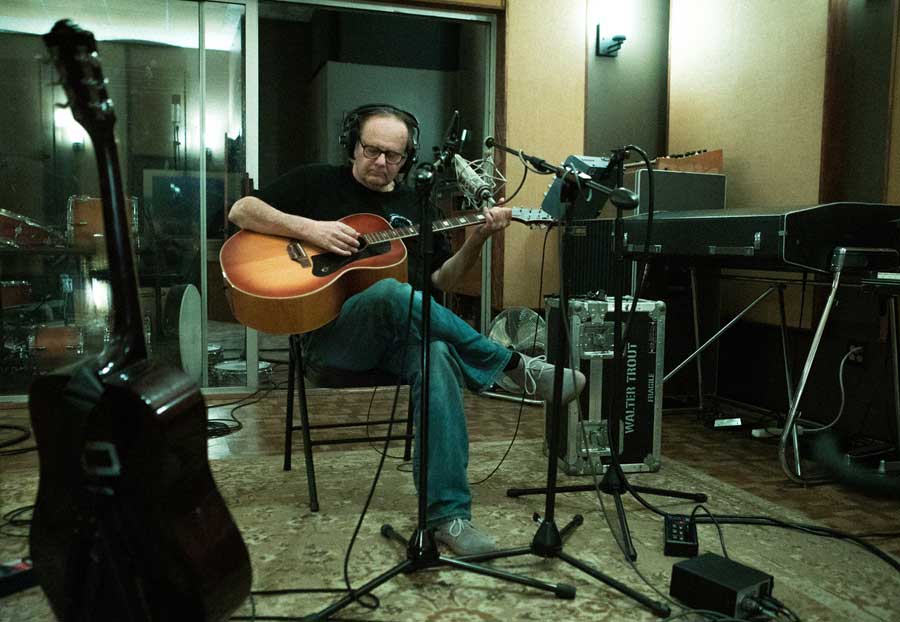
His partnership with Marie - marital, musical and managerial – is a constant thread running through Trout’s recent life and work. She co-wrote Broken, the duet Trout performed with Beth Hart which was the title track and standout moment of Trout’s last album, released in 2024.
“She’s an incredible writer,” Trout says of Marie. “On Broken, Marie wrote eighty per cent of the lyrics. I was doing a demo of it on acoustic guitar, and in my head I could hear Beth’s voice singing it. I had something I wanted to say about my years on the street, but I couldn’t find the words. But Marie did. So I sent Beth the demo, and she called me right up and said: ‘I’ve got to come in and sing this with you’. And she took that song to a whole place I didn’t know it could go. She put that song on another level of emotional content.”
That duet is a perfect example of what sets Trout apart from the latter-day churn of guitar heroes. A song about the long shadow of his past habits brought to life by Marie’s powerful lyric and Hart’s fearless vocals, it exemplifies Trout’s deep respect for the craft of composition, and his willingness to share the spotlight to get the song exactly right.
The new album, Sign Of The Times, continues the sound and story of an artist not just surviving, but thriving: politically alert, emotionally raw, often funny, and as musically potent as ever. It’s also the first time he’s taken the production into his own hands. “I’ve done fifteen albums with [Canadian producer] Eric Corne, so I thought it was time to do something different here. I got JJ Blair [The Who, Rod Stewart] in to do the mix and I think he did an incredible job.”
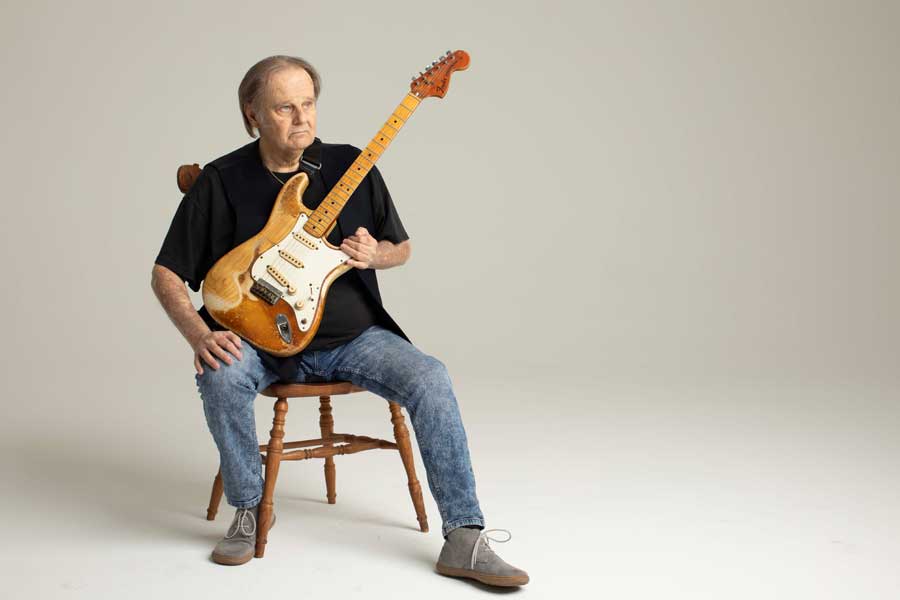
In an age when so many of his peers are content to retread old hits, Trout is writing from the heart, rooted in the present, refusing to go quietly.
“Because of the liver transplant I had [in 2014] I get monitored every few months, where they take blood tests and see how I’m doing. Last time I went they said: ‘You need to come back, there’s been a mistake’. So they did the blood tests again, and they called and said: ‘We don’t understand it. It’s not a mistake, but you’re seventy-four and everything in these blood tests is in the normal range. Your cholesterol is low, your sugar is low. You’re probably healthier now than when you were thirty’. I said: ‘When I was thirty I was a heroin addict. So of course I’m healthier now’.
“I still feel like a young guy. I’m driven to create, to say something. I’ve got more to do.”
Sign Of The Times is available now via Mascot Label Group/Provogue. An exclusive Classic Rock bundle edition featuring a Guitarwrist Walter Trout Bracelet is available from store.loudersound.com
Musician since the 1970s and music writer since the 1980s. Pop and rock correspondent of The Times of London (1985-2015) and columnist in Rolling Stone and Billboard magazines. Contributor to Q magazine, Kerrang!, Mojo, The Guardian, The Independent, The Telegraph, et al. Formerly drummer in TV Smith’s Explorers, London Zoo, Laughing Sam’s Dice and others. Currently singer, songwriter and guitarist with the David Sinclair Four (DS4). His sixth album as bandleader, Apropos Blues, is released 2 September 2022 on Critical Discs/Proper.
You must confirm your public display name before commenting
Please logout and then login again, you will then be prompted to enter your display name.



